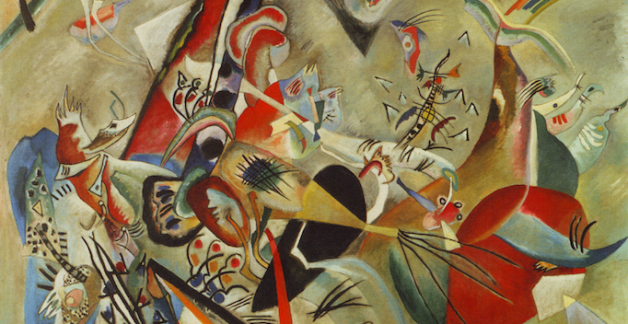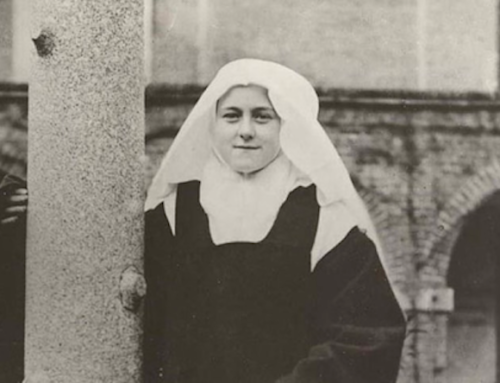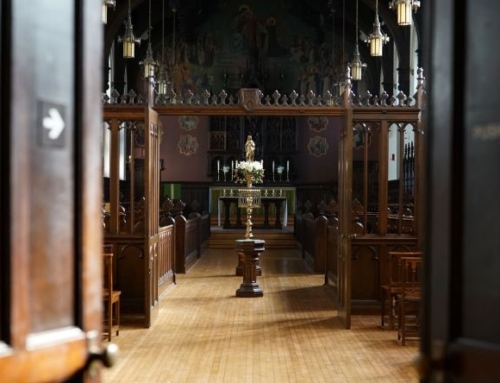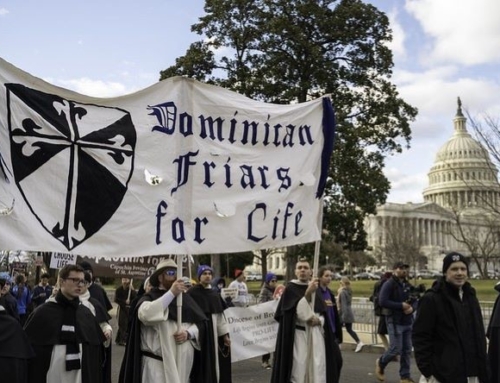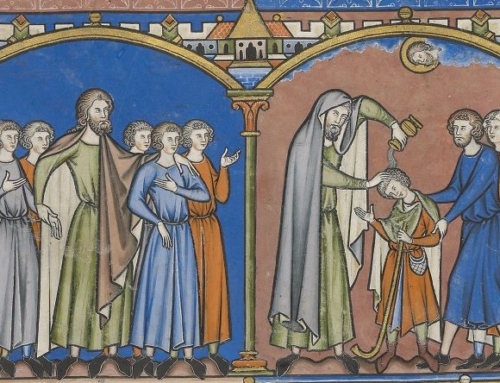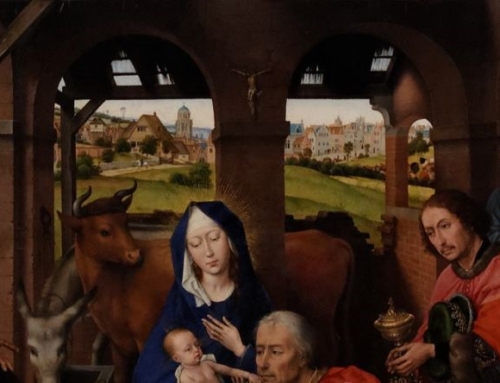Before I entered the Dominican Order, I completed a doctorate in mathematics, in which I focused on the narrow subfield of applied probability; this, as esoteric as it seems, has come in handy at least once in discussions among the brethren. Without going into the great, gory details, let me simply say that I wrote about a model for large polymer molecules, such as proteins or DNA, and how their shape changes when pulled in one direction. This model is called stochastic, that is, it takes into account the random movement of the fluid that surrounds the polymer and examines the net effect on its motion.
While I researched this model, I often wondered: is this motion, or any event, truly random? That is, can there be any effect whose cause is completely uncertain, or which has no cause at all? The random variable in the equation with which I worked is the compound result of billions of atoms and molecules, all moving according to the unpredictable laws of quantum mechanics. When faced with this theory, in which motion occurs on a scale too small to determine with certainty, Albert Einstein quipped, “God does not play dice!” In other words, Einstein was reluctant to accept a physical explanation that seemed to violate the God-given laws of classical mechanics.
This philosophical quandary intrigued me even further when, as if by chance, I ended up defending my thesis on the feast of St. Matthias, two years ago today. St. Matthias, a longtime disciple of the Lord, was chosen as an apostle to replace Judas, seemingly by random draw. The assembly of disciples nominated two candidates, Matthias and Barsabbas, but did not vote on them, as we read:
Then they prayed, “You, Lord, who know the hearts of all, show which one of these two you have chosen to take the place in this apostolic ministry from which Judas turned away to go to his own place.” Then they gave lots to them, and the lot fell upon Matthias, and he was counted with the eleven apostles. (Acts 1:24-26)
Did the disciples, then, leave this important decision to chance? Or did God manifest His divine will through the random event of casting lots? If He did, it was certainly not the first time. When God gave Moses the plans for the tabernacle and priestly vestments, He included a breastplate for the high priest to wear: “In this breastpiece of decision you shall put the Urim and Thummim, that they may be over Aaron’s heart whenever he enters the presence of the LORD. Thus he shall always bear the decisions for the Israelites over his heart in the presence of the LORD” (Ex. 28:30).
The Urim and Thummim (sometimes translated as “light and truth”) were, most likely, two wooden rods that were used to cast lots for making decisions. These were used when asking God who is to blame for a military disaster (see 1 Sam. 14:41) or when deciding which of two goats should bear the sins of the people (see Lev. 16:8), among other occasions. In all of these cases, including the election of St. Matthias, the plan of God was shown forth through an action which we, in our limited knowledge, cannot explain completely. Since we do not perceive all the causes of a draw of lots, a coin flip, a toss of the dice, or the motion of a molecule, we call them random; yet that does not mean that they have no cause.
St. Thomas Aquinas considers this phenomenon of randomness in his treatment of Divine Providence in the Summa Theologiae (I.22.2). “If then everything was foreseen by God, nothing would happen by chance,” says one of his objectors. Yet St. Thomas responds that chance is not beyond the sight of God. He gives the example of two servants who meet unexpectedly in the marketplace: yet both were sent there by the same master. While neither servant can explain how the other came there, the master knew and arranged for the encounter to occur.
Furthermore, St. Thomas says in the Summa Contra Gentiles (III.74.6) that because of the order and gradation of causes, “The order of divine providence requires that there be chance and fortune in reality.” For example, we cannot know the outcome of a die roll before it occurs, nor explain how it turns out the way it does; there are too many variables and causes acting together, such as the speed at which we throw the dice, and the way the dice bounce when they first impact the table. Yet Divine Providence is a higher cause than all of them combined, and nothing, not even events we perceive as random, escapes it. Truly, God does not play dice–rather, He moves the dice.
Because of biblical events like the election of St. Matthias, we can know that God is the master even of chance; when we do not know the reasons for all that goes on around us, He does know. From the stochastic movement of the tiniest molecule to the greatest decisions that affect the whole world, God knows them all and governs them according to His loving and providential plan; and this we can know with certainty.
✠
Image: Vasily Kandinsky, In Grey

